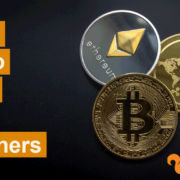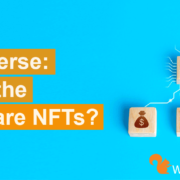Is Crypto Mining Still Profitable in 2021?

But Bitcoin mining can be a costly process, in terms of both expensive computer hardware and software, as well as the energy it takes to keep that mining equipment running. This article will explore whether Bitcoin mining is worth it in 2021, and what some alternatives might be.
Why Bitcoin Mining Exists
Bitcoin mining is the process by which new bitcoins are brought into existence—a process that is capped at 21 million BTC, according to the Bitcoin protocol. As time goes on, mining Bitcoin becomes more difficult, as more miners compete for the next block reward. Today, mining Bitcoin as an individual is rarely profitable unless someone has access to extra low-cost electricity.
Recommended: How Does Bitcoin Mining Work?
The Bitcoin Mining Process
Every Bitcoin transaction gets recorded in a giant public ledger called the blockchain. When a new Bitcoin transaction gets executed, it gets sent to the miners (aka Bitcoin users) for verification.
This verification involves a mathematical proof of work, created by trying billions of calculations per second. Once the complex mathematical problem is solved, the transaction is confirmed and added to the blockchain, and the miner/s who solved it get rewarded with new Bitcoin.
As more bitcoins are mined and the supply of new bitcoins drops, the amount of bitcoins released with every new block diminishes over time. This is known as Bitcoin halving. Generally, the value of Bitcoin soars after periodic Bitcoin halving.
While Bitcoin mining may seem lucrative, to do so effectively requires specialized machines built and tuned specifically to mine cryptocurrencies. It also requires space to house and cool these large, energy-sucking machines that run round the clock.
The mining market is dominated by large companies who secure large warehouse facilities to house their army of ASIC mining rigs. Some of these companies might run mining pools that smaller miners can contribute to in order to get a piece of some block rewards in exchange for a small fee.
Bitcoin Mining Pools
Due to the high cost and rising difficulty of mining Bitcoin, most miners today use something called a mining pool. Participating in mining pools is considered by many to be the only way for smaller miners to make any profit today, and even then it can be difficult to recoup the costs of equipment and electricity.
With a mining pool, individual miners pool their resources together with other miners, improving their chances of mining a block and earning the Bitcoin rewards. When a block gets mined, the rewards are then split up among the different miners in proportion to the amount of computing power (known as hashing power) they contributed.
Mining pool owners typically charge a fee for maintaining the pool. There are several different pools to choose from, each with their own structure.
Factors To Consider When Choosing a Mining Pool
After securing the Bitcoin mining equipment and electricity required for mining, a small miner will need to find a suitable mining pool. There are a few important factors to consider:
• Fees: Most, but not all, Bitcoin mining pools charge fees. The fees are taken from the reward payout and generally range from 0% to 4%.
• Pool size: The larger the pool, the more frequent the payment, as more hashing power equals more blocks being found. This also means that the payouts are smaller since rewards are shared between more people. On the flip side, smaller pools payout less frequently but in larger amounts.
• Security and reliability: Miners might want to find a mining pool that they can trust won’t steal users’ funds or get hacked. Joining established pools with long histories may help to reduce these risks.
How to Mine Bitcoin on Your Own
When Bitcoin was first created, the computer power required for Bitcoin mining was enough for the computer-processing unit (CPU) of an average laptop computer to handle.
Over time, the calculations have become more complex. Today, mining can mostly only be accomplished with advanced Application Specific Integrated Circuit (ASIC) machines, created specifically for mining Bitcoin.
And yet the hardware needs of Bitcoin mining is constantly evolving, as older machines become obsolete. An ASIC that was powerful enough to be profitable six months ago might not be able to produce enough coins to match the cost of electricity needed to run that same ASIC today. When this happens, miners must acquire new, more advanced hardware.
If you plan to try Bitcoin mining on your own, here are some things to consider when purchasing equipment:
• Equipment cost
• Electricity cost
• The time it will take to recoup equipment costs
• How BTC price fluctuations might impact profitability
• The frequency with which you will need to buy newer, more powerful machines and sell old ones
How Long Does it Take to Mine 1 Bitcoin in 2021?
The amount of time it takes to mine one whole bitcoin varies, and depends largely on the amount of hashing power a miner contributes. In general, the more hashing power, the faster a block will be solved, resulting in the miner reaping the block reward in the form of newly minted bitcoins.
Mining difficulty is another important variable. The lower the difficulty, the greater the odds of finding a new block.
When prices rise, this gives more people motivation to mine for coins. Then, as the Bitcoin hash rate increases due to more miners coming online, the difficulty adjustment (which happens every two weeks) tends to rise upward.
When prices fall, the opposite tends to happen, as the costs of bitcoin mining equipment and electricity rise in relation to the value of the coins being mined. As hashing power comes offline, the difficulty tends to adjust downward.
How Many Bitcoins Will Be Mined in 2021?
Currently, there are about 900 new bitcoins being mined every day. If this were to continue to be the case throughout all of 2021, then about 328,500 bitcoin could be mined this year.
The interesting thing to note is that more people mining Bitcoin does not lead to an increase in the number of coins being mined. The block reward is currently set at 6.25 (this will remain true until the next Bitcoin halving), and one block gets mined roughly every 10 minutes. Increased competition for blocks leads to a higher hash rate, but the number of new coins being minted remains the same.
Alternatives to Mining Bitcoin
For those who choose to undertake the cumbersome task of mining crypto, the best cryptocurrency to mine might be the one with the lowest difficulty and highest price.
Of course, these dynamics are in a constant state of flux, so the best cryptocurrency to mine today might not be the best one to mine tomorrow.
Historically, the only time altcoin miners have made significant profits has been when they were mining lesser-known, cheaper coins in the weeks and months before a large increase in prices, or an “alt season.” This has happened twice so far—once in 2017 and again in late 2020/early 2021.
Smaller altcoins tend to have lower difficulty, making it easier to mine more of them in a short amount of time.
Making significant investments in altcoin mining can be likened to buying a lottery ticket. The odds of success are slim, but the payoff could be sizable for a few fortunate individuals.
Is it Worth Mining Ethereum In 2021?
Some might say that mining Ether (ETH), the token that powers the Ethereum network, is worth it in 2021 because this might be the last year anyone can do so.
Recommended: Ethereum Investing 101: What is Ethereum and How Does It Work?
Ethereum developers are working on an upgrade to the network called “Ethereum 2.0.” This upgrade will change the consensus mechanism for Ethereum from proof-of-work to proof-of-stake. The first phase of the upgrade began in December 2020 and the final phases are planned for periods throughout 2021 and 2022.
While it’s still possible to mine ETH so long as the network uses proof-of-work, doing so will no longer be possible with proof-of-stake. Instead, only those who hold large quantities of ETH will be able to stake their tokens and become “validators.” Validators will have a chance at winning the next block rewards, with the highest odds going to those with the greatest amount of ETH staked.
The Takeaway
Anyone looking to make a side hustle out of Bitcoin mining is likely to be disappointed. The days of profitably mining crypto by oneself have long since come and gone, though other opportunities like mining pools are another way for individuals to get in on crypto mining.
But Bitcoin mining is not the only way for an investor to grow their crypto holdings. An easier way to build a crypto collection is by using SoFi Invest® crypto trading. Members can invest in crypto like Bitcoin, Ethereum, and Litecoin, knowing their crypto is kept secure from fraud and accessible for trading through the SoFi app.
SoFi Invest®
The information provided is not meant to provide investment or financial advice. Investment decisions should be based on an individual’s specific financial needs, goals and risk profile. SoFi can’t guarantee future financial performance. Advisory services offered through SoFi Wealth, LLC. SoFi Securities, LLC, member FINRA / SIPC . SoFi Invest refers to the three investment and trading platforms operated by Social Finance, Inc. and its affiliates (described below). Individual customer accounts may be subject to the terms applicable to one or more of the platforms below.
1) Automated Investing—The Automated Investing platform is owned by SoFi Wealth LLC, an SEC Registered Investment Advisor (“Sofi Wealth“). Brokerage services are provided to SoFi Wealth LLC by SoFi Securities LLC, an affiliated SEC registered broker dealer and member FINRA/SIPC, (“Sofi Securities).
2) Active Investing—The Active Investing platform is owned by SoFi Securities LLC. Clearing and custody of all securities are provided by APEX Clearing Corporation.
3) Cryptocurrency is offered by SoFi Digital Assets, LLC, a FinCEN registered Money Service Business.
For additional disclosures related to the SoFi Invest platforms described above, including state licensure of Sofi Digital Assets, LLC, please visit www.sofi.com/legal.
Neither the Investment Advisor Representatives of SoFi Wealth, nor the Registered Representatives of SoFi Securities are compensated for the sale of any product or service sold through any SoFi Invest platform. Information related to lending products contained herein should not be construed as an offer or pre-qualification for any loan product offered by SoFi Lending Corp and/or its affiliates.
Crypto: Bitcoin and other cryptocurrencies aren’t endorsed or guaranteed by any government, are volatile, and involve a high degree of risk. Consumer protection and securities laws don’t regulate cryptocurrencies to the same degree as traditional brokerage and investment products. Research and knowledge are essential prerequisites before engaging with any cryptocurrency. US regulators, including FINRA , the SEC , and the CFPB , have issued public advisories concerning digital asset risk. Cryptocurrency purchases should not be made with funds drawn from financial products including student loans, personal loans, mortgage refinancing, savings, retirement funds or traditional investments.
SOIN21140









